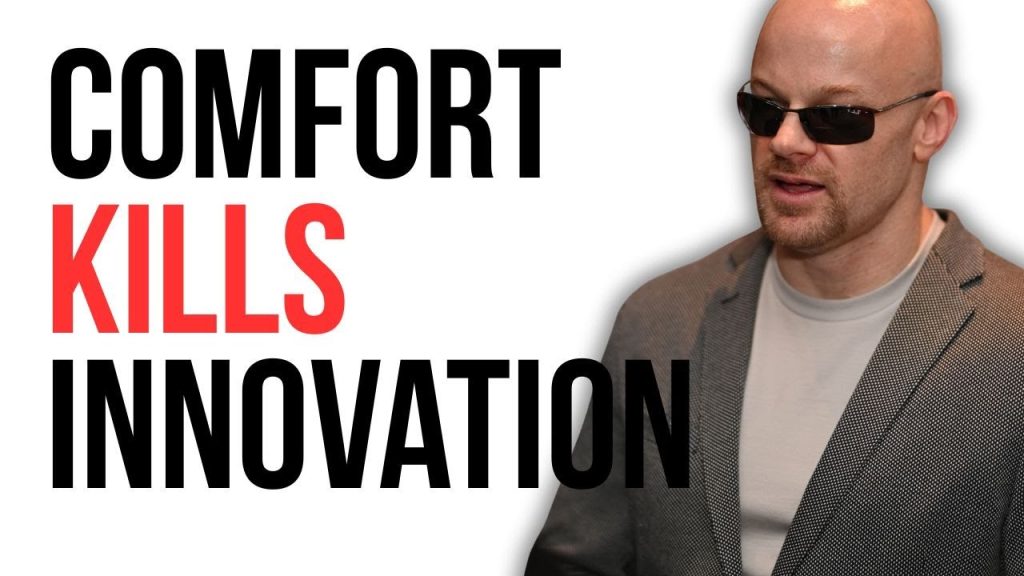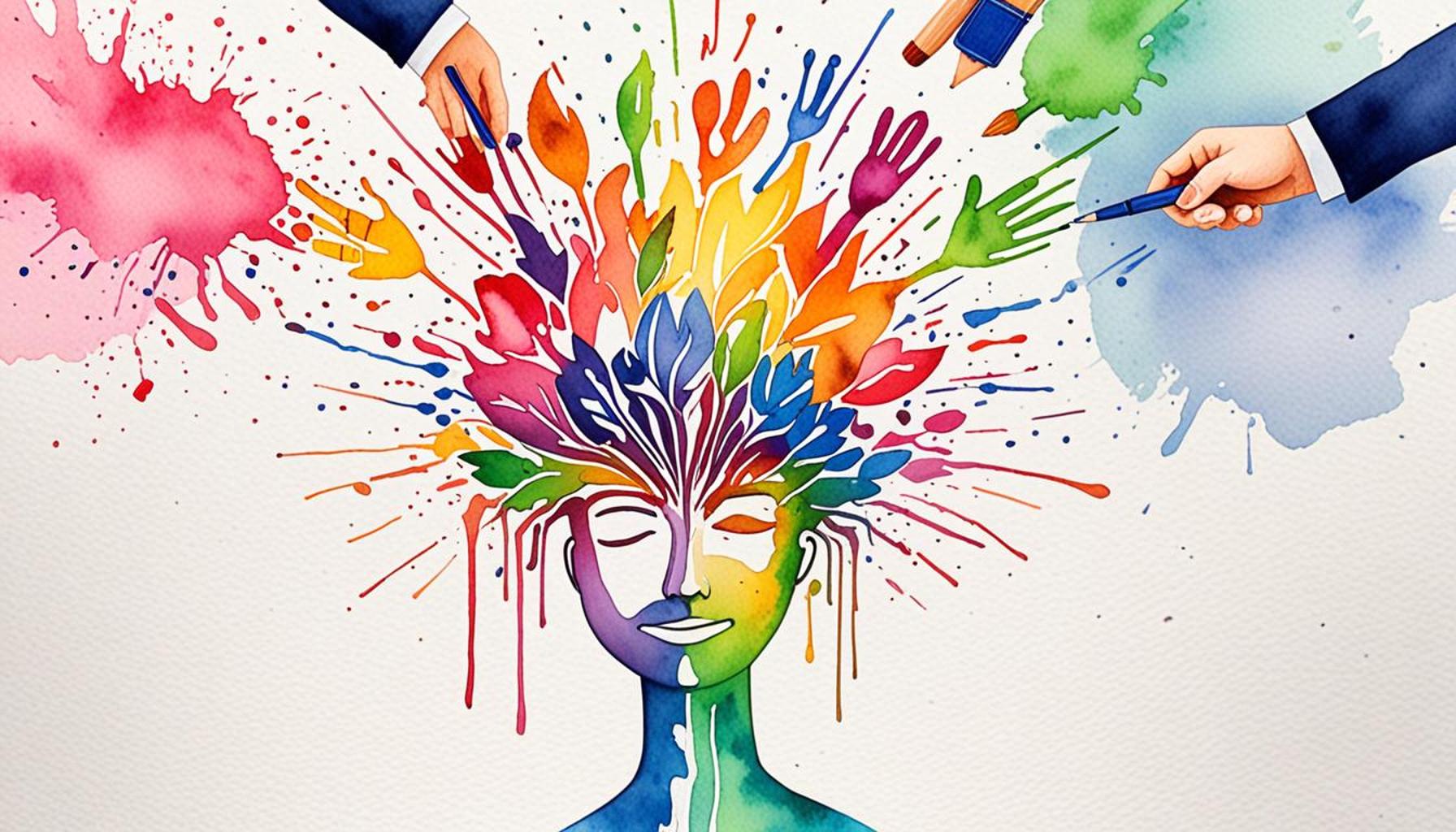Emotional Resilience as a Foundation for Innovation and Creativity in Work Environments

The Importance of Emotional Resilience in the Workplace
In the rapidly changing landscape of today’s workplaces, particularly in Nigeria, the ability to adapt emotionally is increasingly essential. Emotional resilience is the ability to bounce back from setbacks, stress, and challenges, and it is becoming a core competency for success in both individual and organizational contexts. Resilient employees demonstrate not just a capacity for endurance but also a proactive approach that fosters a work environment that is conducive to innovation and creativity.
One of the most significant aspects of emotional resilience is adaptability. In a climate where businesses must frequently pivot due to market demands, resilient employees can swiftly adjust to change and uncertainty, thereby promoting a culture of flexibility that benefits the entire organization. For instance, when a new technology is implemented, those with high emotional resilience are more likely to embrace the shift rather than resist it, ultimately aiding in smoother transitions and minimizing productivity lags.
Collaboration is another critical area where emotional resilience shines. Teams that comprise emotionally resilient individuals communicate more effectively and support one another during challenging times. This collaboration fosters a spirit of teamwork that can be particularly beneficial in Nigerian companies that often rely on group efforts to execute projects. For example, in industries such as oil and gas, collaborative problem-solving can be critical to overcoming logistical challenges, and resilient team members contribute to a supportive atmosphere, enhancing overall effectiveness.
Additionally, emotional resilience enhances problem-solving capabilities. When faced with obstacles, resilient individuals are more inclined to approach these challenges with creative solutions rather than viewing them as insurmountable barriers. This proactive problem-solving mindset can lead to innovative ideas that drive an organization forward. This is especially pertinent for startups in Nigeria’s burgeoning tech scene, where novel approaches can set a business apart in a competitive landscape.
In the context of Nigeria’s rapidly evolving economy, nurturing emotional resilience among employees can have a profound impact on business outcomes. Those equipped with resilience can manage the stress of market fluctuations or competitive pressures, leading to greater productivity and creative output. Companies that invest in training programs focusing on emotional skills enable their workforce to not only enhance individual performance but also invigorate their organizational culture.

This exploration of emotional resilience is not merely theoretical; it serves as an invitation for readers to consider how harnessing this attribute has the potential to transform traditional work environments into vibrant hubs of creativity and forward-thinking. By understanding and promoting emotional resilience, organizations can not only improve employee well-being but also secure a competitive advantage in an increasingly complex global market.
RECOMMENDED: Check out this similar article
Fostering Emotional Resilience for Innovation
As workplaces evolve within the competitive landscape of Nigeria, the role of emotional resilience grows more critical. The modern economy demands not just skilled individuals but also workers who can remain composed under pressure. This trait can act as a cornerstone for driving innovation and creativity in work environments. Organizations that prioritize emotional resilience tend to cultivate teams that are not only robust in dealing with challenges but are also agile and better positioned to brainstorm creative solutions.
To harness the power of emotional resilience in fostering innovation, businesses must understand its core components. These include:
- Self-awareness: Recognizing one’s emotions and their impact on thoughts and behavior is essential in navigating workplace challenges. Employees who possess self-awareness can evaluate situations critically, allowing them to pivot quickly towards innovative strategies.
- Emotional regulation: The ability to manage emotions effectively can prevent negative reactions in difficult circumstances. Employees with strong emotional regulation contribute positively to a team atmosphere, fostering collaboration that encourages creative expression.
- Optimism: Maintaining a positive outlook in challenging times can inspire teams to pursue unconventional ideas and solutions. When employees believe in their ability to overcome obstacles, they are more likely to explore innovative paths.
- Social support: Building a community of supportive colleagues enhances emotional resilience among teams. Having a network of peers to lean on can lead to a more collaborative and creatively vibrant workplace.
In Nigeria, where rapid changes and unpredictable market conditions are the norm, investing in emotional resilience training can yield substantial benefits. Companies such as Access Bank have recognized the strategic importance of integrating emotional intelligence into their training programs, thereby cultivating an environment that nurtures both innovation and employee well-being. These initiatives not only equip employees with essential skills but also foster a culture of resilience that permeates every level of the organization.
Moreover, resilient employees have a natural inclination to engage in risk-taking behaviors aimed at innovation. According to a recent survey, businesses that embrace a risk-friendly culture report higher levels of creativity and problem-solving capabilities among their staff. For instance, in tech startup hubs like Lagos, where innovation is key to falling in line with global trends, emotional resilience can empower teams to experiment without the fear of failure.
Organizations aspiring to be at the forefront of their industries must focus on integrating emotional resilience into their workforce framework. The implications extend beyond merely improving productivity; they pave the way for organizations to become innovation leaders within their sectors. By embedding emotional resilience into their corporate culture, companies can not only enhance the quality of their work environments but also establish a strong foundation for sustainable growth and creativity.
| Advantage | Description |
|---|---|
| Enhanced Problem-Solving Abilities | Emotional resilience equips individuals to tackle challenges creatively, enabling a more innovative approach to problem-solving. |
| Improved Team Collaboration | Resilient individuals promote a supportive work culture, fostering collaboration and shared creativity among team members. |
Emotional resilience plays a crucial role in enhancing problem-solving abilities in the workplace. When employees develop a strong sense of emotional resilience, they are more likely to embrace challenges as opportunities for growth rather than threats. This mindset allows them to approach issues with a creative flair, leading to novel solutions that may not have been considered otherwise. The cultivation of resilience not only bolsters an individual’s capacity to innovate but also contributes to a dynamic environment where experimentation is encouraged.Moreover, emotional resilience fosters improved team collaboration. In a workplace characterized by resilience, members feel secure in expressing their ideas, leading to a more inclusive atmosphere. When team members support one another in overcoming obstacles, creativity flourishes. This collective resilience creates a powerful synergy that drives the organization towards innovative breakthroughs, making it essential for businesses aspiring to stay competitive in today’s fast-paced market.
YOU MAY ALSO LIKE: Read read another article
Unlocking Creativity through Emotional Resilience
Emotional resilience does not merely serve as an umbrella for coping with stress; it is also an igniter of creativity in the workplace. When employees are emotionally resilient, they tend to approach challenges with a renewed perspective, identifying opportunities hidden within obstacles. This connection between emotional resilience and creative problem-solving is especially pertinent in the fast-changing landscape of Nigeria’s economy.
Research indicates that workplaces that actively engage in promoting emotional resilience can see a direct increase in their employees’ creativity levels. A study conducted by PwC revealed that companies in Nigeria prioritizing mental health and emotional well-being displayed a 25% increase in creative output within teams. In a country where entrepreneurial ventures are burgeoning, this becomes crucial for businesses wanting to stand out in a crowded marketplace.
Additionally, understanding the dynamics of emotional resilience can help organizations foster an environment that encourages collaboration and teamwork. Nigerian companies like Interswitch have embedded resilience-building practices into their corporate culture. This commitment fosters a shared sense of purpose and creative synergy among teams. Collaborative brainstorming sessions infused with emotional support allow for diverse ideas to flourish, translating into innovative products and services that reflect the needs of a rapidly evolving consumer base.
The implementation of mindfulness training as part of emotional resilience initiatives further allows employees to cultivate their creative capacities. Mindfulness encourages individuals to focus on the present, which can significantly mitigate the effects of workplace stress. In cities bustling with energy like Lagos and Abuja, a few organizations have begun incorporating mindfulness into their weekly schedules. Employees engaged in mindfulness exercises are better equipped to tap into their creative potentials, transforming stress into inspiration and productivity.
It is also vital to recognize the role of leadership in promoting emotional resilience within teams. Leaders who demonstrate emotional awareness and provide constructive feedback create psychologically safe spaces where employees feel emboldened to share bold ideas without fear of judgment. For instance, during Idea Hackathons organized by various startups in Nigeria, effective leadership provides the scaffolding needed for teams to experiment freely, drawing upon their emotional resilience and collaborative skills.
The relationship between emotional resilience and innovation is further enhanced by encouraging diversity in teams. Diverse perspectives not only enrich the pool of ideas but also foster an inclusive culture that enhances emotional resilience. When individuals from various backgrounds collaborate, they often confront challenges from multiple angles, leading to unique and creative solutions. Companies such as Flutterwave have acknowledged this fact, integrating diverse talent into their workforce to create an inclusive environment that empowers innovation.
Moreover, embracing failure as a stepping stone rather than a setback is a hallmark of emotionally resilient teams. Nigerian businesses that celebrate failures as learning opportunities cultivate a culture where employees feel safe to take calculated risks. According to a survey by Deloitte, organizations that promote a healthy attitude toward failure reported a 30% rise in innovative initiatives stemming from team projects. This proactive approach furthers the notion that emotional resilience lays a firm foundation for sustainable innovation.
YOU MAY ALSO LIKE: Read read another article
Conclusion: Cultivating Innovation through Emotional Resilience
In today’s dynamic work environments, especially within the rapidly evolving landscape of Nigeria’s economy, emotional resilience has emerged as a crucial catalyst for fostering innovation and creativity. As discussed, resilient individuals are not merely more equipped to face challenges but are also able to view those challenges as opportunities for growth and creative problem-solving. This transformative perspective is essential for organizations seeking to remain competitive in a thriving entrepreneurial market.
Companies that prioritize mental health and emotional support see tangible benefits, as highlighted by studies revealing significant increases in team creativity and collaborative output. For instance, embracing practices like mindfulness training and fostering a culture that celebrates diversity allows businesses like Interswitch and Flutterwave to unleash the full potential of their workforce. Leaders play a pivotal role in this journey, crafting psychologically safe environments that enable employees to innovate without fear of failure, thus nurturing a vibrant culture of experimentation.
Moreover, recognizing and embracing failures as learning opportunities rather than setbacks cultivates a resilient workforce that is unafraid to take calculated risks. This perspective not only fuels innovative initiatives but also contributes to sustained organizational growth. As Nigeria continues to navigate economic shifts, investing in emotional resilience will be critical for businesses aiming to harness creativity and stay ahead in the game.
Ultimately, as organizations recognize the integral link between emotional resilience and creativity, they will empower their employees to thrive, innovate, and drive the change needed in today’s competitive world. The future of work in Nigeria is not just about surviving; it’s about creatively thriving by building resilient foundations.


